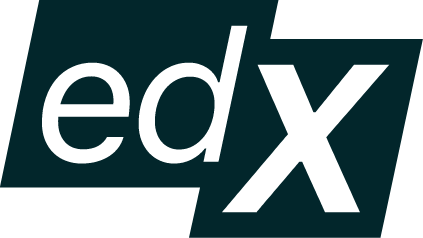In the age of artificial intelligence (AI) and hiring automation, it’s easy to feel lost in a digital crowd. It’s no longer simply a matter of outshining your peers and fellow applicants; you also face the challenge of systems that can automate aspects of your job or pose obstacles through automated recruitment processes. Given that reality, it’s easy to feel overshadowed by algorithms and data-driven decision-making. However, there’s a compelling paradox at play here: In a world increasingly dominated by technology, your greatest asset may very well be your humanity.
While AI excels at data analysis and pattern recognition, it struggles with the nuanced qualities that define us as humans. When the world is distracted by artificial intelligence, leverage your emotional and cognitive intelligence to build authentic connections with your network, peers, and potential employers. We consulted our career experts to gain insights on navigating your career during these extraordinary times. They highlighted specific domains where human strengths shine: emotional intelligence, critical thinking, communication, and innovation — just to name a few. Keep reading to discover how embracing your unique personal and professional experiences can set you apart in your career. In a tech-savvy era, your human nature can make all the difference, after all.
Where humans excel: A look at experience-driven domains
When we look at the role humans have played and continue to play in most career fields, it serves as a great reminder of the value we bring and what we’re capable of. Career expert Matthew Rodgers has a fascinating take on this subject: “As we think about what we [as humans] can bring and what we’re able to showcase [in the professional realm], it is the fact that we aren’t a computer program. We aren’t just put together to do and run specific things. We can do everything that our minds allow us to.”
And, when it comes down to it, most organizations are fundamentally designed to address and solve human problems. With that understanding, we can appreciate the pivotal role that human beings play in this endeavor. Let’s delve into a few essential areas where you can use your unique traits to solve tangible and abstract challenges:
Emotional Intelligence
One of the core tenets for solving human problems is understanding the issues, who they affect, and any ethical implications that are involved. This is why context and discernment matter.
As a human being, you can unlock and build emotional intelligence, allowing you to solve problems you may not even experience firsthand. Your ability to connect with others, validate and recognize their feelings, and navigate interpersonal relationships is invaluable in a team-oriented workplace, where ethical considerations are paramount.
When AI lacks emotional understanding and empathy, humans can frame experiences, contextualize conditions, and empathize with a spectrum of emotions and respond accordingly.
Career callout
While technical skills are important, don’t downplay interpersonal skills. Use your cover letter and resume bullet points to highlight collaboration, conflict resolution, mentoring, or volunteer experience that shows who you are as a person and how you contribute to a team. It’s not only about discussing your empathy and emotional intelligence; it’s crucial to illustrate when and how you applied them.
Expert advice
“We are humans. And, I mean, sometimes it can get in the way because we can get emotional. Something bad happened at home and we might bring it to work. So, you could see the benefits [of] machine learning, why that wouldn’t happen. But, then at the same time, that’s what makes us empathetic. And that, you know, a machine cannot make a connection — it can only put things together to sound like it. But, a human is authentic.”
– Irene Tirella, career expert at edX

Expert advice
“If you have to think about the nuances of what makes you human, and what could possibly go wrong, or what could go right, I don’t necessarily think AI could pick [that up]. It’s a learning model. So it is learning as you are inputting information. But, I think there’s certain aspects of us as humans that it couldn’t possibly mirror.”
– Andrea Buwalda, career expert at edX

Critical thinking
One of our strengths as humans is our ability to be dynamic. As we approach problems, we can adapt and iterate as new findings, feedback, and challenges arise. The reality we face is this: The world doesn’t stop turning.
Our ability to think critically and adjust to changing circumstances and a wide spectrum of needs is crucial to solving problems in real time — which is something AI can’t do without us.
AI processes information based on algorithms and existing data. In contrast, humans can evaluate situations, consider multiple factors, and make informed decisions, particularly in situations with incomplete or contradictory data, not to mention abstract needs or applications.
Career callout
Every field needs critical thinkers. When preparing for behavioral interviews, write down a few examples demonstrating how you’ve used this skill in your career. Think about times when you have solved a complex problem, evaluated risk, adapted to changing business needs, or had to make a judgment call with limited input.
Expert advice
“AI won’t recognize the deer in the headlights look that someone might give you. To then say, ‘Oh, we need to ease into this conversation.’ It’ll just keep spitting out to go through all of these pieces, and it could do more harm than good in that sense. Because, yes, they have the ‘right answers’ based on the training that the model has been utilized to spit out, but the human element of being cautious, nervous, or even scared about doing new things is completely gone.”
“It will just tell you what it already knows, but it’s not going to put that [into] context and recognize, ‘Oh, you need to tread lightly here.’ The human element is always that we might have done those same things before. No computer program has done what we’ve done. So the point of being able to speak to someone who has walked the walk and can talk the talk better than just, ‘input equals output and done’ [is impactful].”
– Matthew Rodgers, career expert at edX

Communication
Connection is exclusive to living beings. One of our greatest differentiators as humans is our ability to feel, connect, and act on our emotions through verbal and nonverbal cues and communication. In most cases, our ability to communicate directly impacts our processes, motivations, and outcomes.
Effective communication is a distinctly human trait in contexts involving nuance, persuasion, and active listening. AI, on the other hand, is limited in its ability to “communicate.” It receives data, information, and requests through inputs and outputs, preventing it from adapting independently to the spectrum that humans exist on.
Career callout
Effective communication is the cornerstone of successful networking. It allows you to convey your ideas clearly, listen actively, and build meaningful connections. Good communication fosters trust, making it easier to establish long-lasting relationships, whether in person or virtually. While practicing talking points ahead of time can help fill awkward silences, don’t over-prepare. When meeting potential employers, be present; listen attentively, notice body language, and ask follow-up questions.
Expert advice
“When you’re speaking to someone, there is an opportunity for them to challenge you a bit, you know, to peel back the onion, which [AI] doesn’t do; it just accepts the demands and kind of gives you what you wanna hear. If you say, ‘Well, I don’t like networking.’ It’s going to remove networking. It’s not going to challenge you on that to remove the barriers.”
– Andrea Buwalda, career expert at edX

Expert advice
“AI can be very decisive on what it knows, but it can’t use nonverbal cues in discussions to understand when to back off or when to push forward or when to describe more or when to move on… To understand those things, you know? It’s just a quick tilt of the head with someone. That might be all that a human needs to know to say, ‘Mmm, pause here. Ask a question.’”
– Matthew Rodgers, career expert at edX

Innovation and vision
One double-edged sword of humans is our ability to dream. The inputs we gather from our past and present provide us with a framework to innovate. We can envision future possibilities, set goals, and drive long-term strategies. Amazing as it is, we occasionally run the risk of getting lost in those future thoughts.
When humans innovate and dream responsibly, they can do tremendous things. Our combined ability to imagine, empathize, and experience set us apart from automated tools. We can envision future possibilities with wonder while simultaneously responding to lessons learned and information gathered.
Automated systems are incapable of this feeling of wonder. While humans are only restrained by their own limitations, AI is limited by data autonomy, context, timeline restrictions, and so much more. Generally, AI only has the means to focus on immediate data-driven tasks and lacks the foresight that humans possess and frequently employ.
Career callout
Lifelong learners make the best employees — regardless of the industry. Pursue relevant courses, certifications, or training programs that demonstrate your dedication to staying at the forefront of your field. Mention these initiatives on your resume and during interviews to illustrate your long term goals and show your commitment to ongoing learning and improvement.
Expert advice
“The best thing available to us [is] our ability to anticipate problems that humans face [and that] other humans have experienced or at least have knowledge about what they would do if given that situation, which is the true human element. AI won’t solve the problem. AI will make us more efficient and more effective, but those pieces of [being human] will allow us to rule the next steps for what these AI tools will do. [This is] based on everything that we’ve spoken of previously in emotional intelligence, contextual understanding, common sense, being able to adapt to those things, ethics. It’s not just hard coded. These are things where it could be various shades of gray that we need to try and dissect between. And no system can do it as quickly and as adeptly as what the human mind can.”
– Matthew Rodgers, career expert at edX

As we continue to navigate the landscape of technology, it’s important to remember the irreplaceable value of our humanity. Our intelligence, creativity, critical thinking, and communication skills remain uniquely human assets in a world of algorithms and automation. These qualities set us apart in the job search and define our capacity for innovation.
While it is true that artificial intelligence will continue to augment our lives, it cannot replicate the depth of human understanding, adaptability, and foresight. So, as you continue on your professional journey, embrace the paradox: In this tech-savvy era, your humanity is not just a difference; it’s your superpower.




